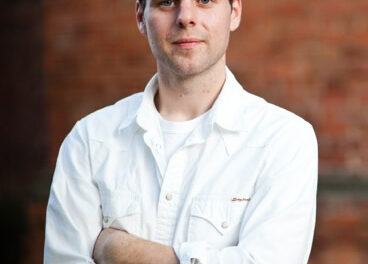The Mallarmé Chamber Players presented Bonnie Thron and Friends on Sunday afternoon, November 13, at First Presbyterian Church in downtown Durham. The concert was also a celebration, with First Presbyterian Church, of pastor Joe Harvard’s 25 years of leadership in the community. The church sanctuary was nearly full, and a friendly and celebratory air prevailed through the performances and during the pleasant reception that followed.
The “Music on Main Street” concert began with one of Beethoven’s five sonatas for piano and cello, specifically the Sonata in A Major, Op 69, composed 1805-6 and sent to the publisher with a group of manuscripts that included the Fifth and Sixth Symphonies. Pianist Jane Hawkins, familiar to Triangle audiences for her frequent appearances with other soloists and diverse groups here and far beyond, joined Thron. They formed a solid collaboration in the performance of Beethoven’s powerful and moving music. With conviction and sensitivity, Thron launched into the opening allegro melody, a melody not quite melancholy but with a touch of wistfulness, soon joined by piano arpeggios. Beethoven develops his theme through an impressive pizzicato cello passage and some typically stormy interludes. The middle scherzo movement was both lively and pastoral; it may have had some genesis in the same inspirational pool as the Sixth Symphony. The third movement begins with a serious adagio passage and moves into allegro vivace, with some beautiful cello solo passages that were then matched by marvelous piano work with a cello descant. A couple of deceptive cadences (how Beethoven loved to do this!) may have left some in the audience with a “shave and a hair-cut…” feeling, but the piece moved on with vigor until the final certain cadence. The performances of both Thron and Hawkins were solid, sensitive, and well balanced.
The next friend to join our cello mistress of the day was Mallarmé’s (and the Ciompi Quartet’s) Eric Pritchard. Zoltán Kodály’s Duo for violin and cello, Op. 7, was composed in 1914. One thinks of Kodály in terms of his intense interest and love of Hungarian ethnic music. He and his friend Béla Bartók collected and catalogued over 100,000 folk songs, an incredible historic treasure; many of them infuse their music. The setup of a duo is an ideal format for a variety of conversations – bickering and commiserating, chatting and commenting to each other. Near the end, the cello makes a very powerful assertion (in a most striking melody) and is answered just as powerfully and beautifully by the violin, while the cello provides support with rhythmic plucked open fifths. Very nice music. Very nice playing. Very nice indeed!
The program closed with Gabriel Fauré’s four-movement Piano Quartet in C minor, Op. 15, the first of his two works in this form. It was penned between 1876 and 1879 with some final revisions in 1883. For this performance, Thron was joined by Pritchard, violist David Marschall, and Hawkins. After a full-throated introduction in the strings, the piano introduces a bright and lilting melody over a soft string background. The music develops with lyrical episodes for each of the instruments and in combinations. In my notes I characterized the scherzo, with plucked strings and dancing piano, as “Perfect Sunday afternoon traveling music.” In the adagio, the cello introduces a melancholy theme which, instead of falling down the scale in sadness, actually rises as the sadness intensifies till finally, with the help of the whole ensemble, the sadness is absorbed and dissipated. (The quartet was written during a time Fauré was grieving the loss of his fiancée and their five-year romance.) The final movement seems to say, “Well all right then, let’s get on with it.” The music, with runs in the piano, is a little uneasy at first, but more determination is introduced, and an almost march-like theme leads to a positive ending.
Bonnie Thron, principal cellist with the North Carolina Symphony for five years, possesses an accomplished and graceful technique as well as a gracious personality, and she seems to gain friends wherever she plays. How fortunate for us that she has friends like Hawkins, Pritchard, and Marschall, and how fortunate we were to have had this opportunity to hear them make music together!











